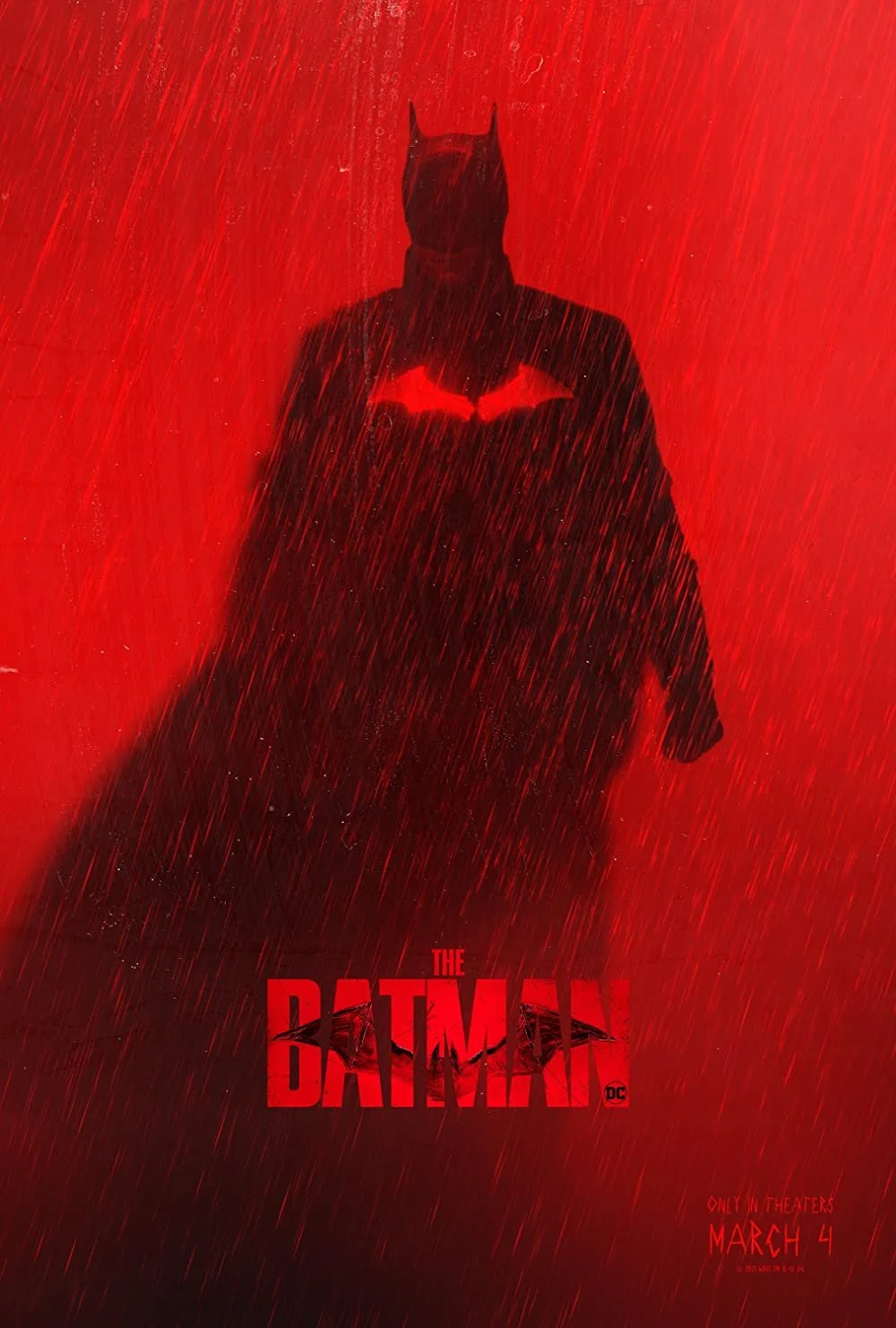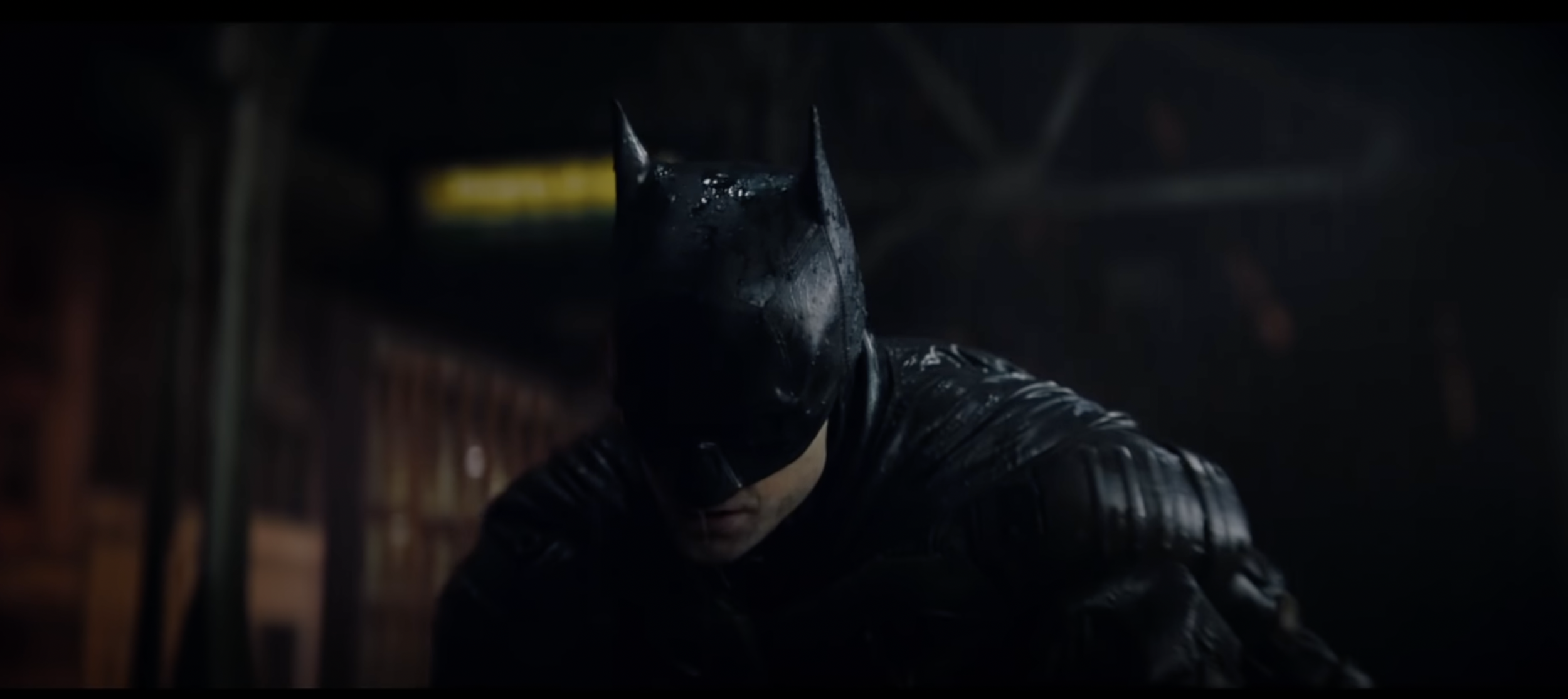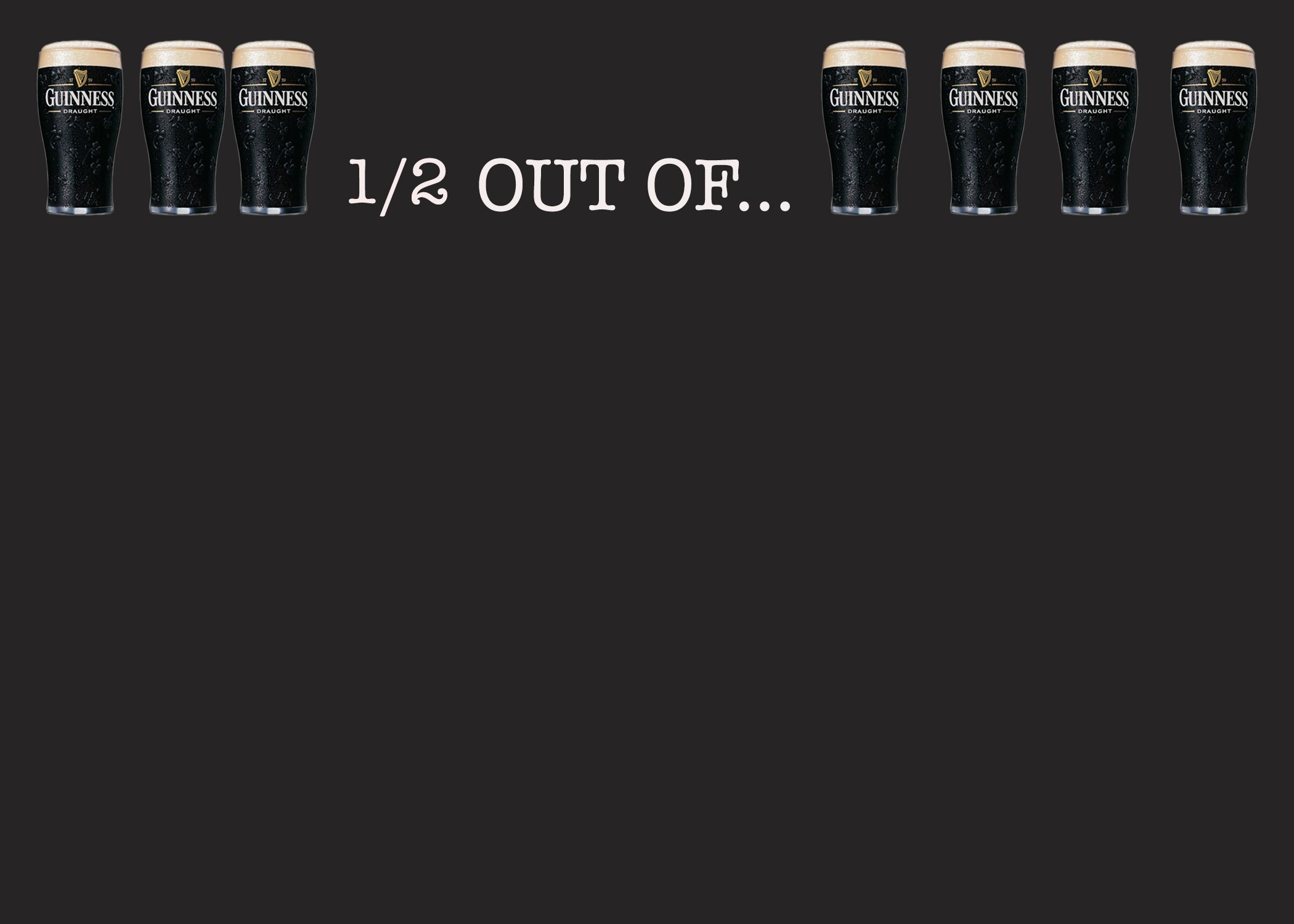'The Batman' is a triumph of emotion over identity
Batman holds a firm place in my heart. Tim Burton's 1989 comic book movie game-changer is the film that got me obsessed with cinema. I remember listening to Danny Elfman's score for Batman on cassette tape. The large wooden structured subwoofers rattled my family room floor like an earthquake. Cranking the volume to its limits, those top-of-the-line speakers lived a short life. As the years transgressed, so did my maturity with art. The dark, brooding caped crusader regressed into camp territory with Joel Schumacher, which haunted the director to his grave; later, Batman was dark again with the creative eye of Christopher Nolan. Then came the Snyerverse, which introduced one of the best Bat-Men (Ben Affleck) within a mediocre set of filmsx
Thirty-three years on since Tim Burton washed Adam West's Bat-camp to the shores along with his shark repellent, Matt Reeves, the man behind the first Cloverfield and last two Planet of The Apes dons the cowl as director. Fully aware of the challenge ahead of him, Mr. Reeves puts his cards on the table, not just making a Batman movie but titling his film, THE Batman. Is 2022's iteration of the masked vigilante indeed The best Batman? No, But it's a damn good one.
Reeve's Batman is a blend of two different Batman eras sprinkled with crumbs of David Fincher's Se7en. The gothic horror from Tim Burton's Batman exists in Greig Fraser's jaw-dropping cinematography. The image isn't muted like in the Nolan films or intentionally made to look a little fake with Snyder's use of CGI. This movie looks like a comic book created for a new generation. The orange glow from streetlights to the water soaked rain droplets covering the actor's faces utilizes the frame for maximum visual impact. Fraser combines Burton's dark blues and greys with Christopher Nolan's natural muted tones creating an equally beautiful and ugly Gotham City. One that recycles Chicago areas like the L, and Stock Exchange from The Dark Knight, paying homage to the films before it and knighting the windy city as the world’s Gotham.
The Batman is more realistic than The Dark Knight Trilogy. There's an inherent risk where this Batman could get hurt or die on the job. The driving appeal to Batman for me is his vulnerability. The lack of superpowers made Batman more incredible than the Supermen of the world because anyone could be Batman if rich enough.
Batman takes as much pain as he gives. Although we know Bats will wind up okay in the end, there are some moments in the picture where I genuinely felt concerned for him. Knowing some goon could take Batman down with one well-placed shotgun blast to the armor makes Bruce's endeavors all the more heroic. The combat is expertly choreographed. The geography of the character's position is blocked with precision. Each impact is visceral as the sound mix leans heavily on every cracked bone. When Batman proclaims, "I'm vengeance," he's not kidding around. This Batman won't kill you, but you'll wish you're dead after breathing through a tube.
I didn't know how to feel about Robert Pattinson's portrayal of Batman upon first viewing. The most challenging aspect for an actor to nail in any role is the voice. Batman says a lot in this film. Like how Fraser's cinematography shares a color palette that mimics Batman's cinematic history, Robert Pattinson's Bat does the same.
Battinson's voice is a Batfleck modulator of its own. During an interrogation, Bats will lower his voice but not to the point of sounding like he has throat cancer. Just a tint of gruff to know he means business. When speaking with allies unaware of his identity, the gravel is removed, replaced with whispers. Whatever resemblance of Bruce Wayne that may exist is falling deeper inside the caves of Batman’s persona . Unable to handle both lives as Bruce Wayne and Batman, thick into his second year of fighting crime, Bruce's Bat vocals are almost identical to Bruce's everyday voice, making the two the same.
Matt Reeves depicts an accurate image of how being Batman can significantly damage one's mental health. This Bruce Wayne isn't built like a train. His physique is deteriorating; he hardly sleeps and pushes away those who care about him. Pattinson is unpredictable, making him all the more intimidating. He's one hair-trigger-away temper from going on a Frank Miller killing spree.
Whatever criticisms the audience may have for Robert Pattinson being too handsome or too thin for the role was made conscionably in the story to emphasize how nobody would ever guess Bruce Wayne is Batman. Furthermore, for once, we see how the job of being Batman can ruin someone's life, offering an unexpectedly fresh take on the character. Adding to the freshness is an intricate plot involving The Riddler's (Paul Dano) trail of clues behind his murders for Batman to follow.
Far removed from the comedic interpretations of the past, Paul Dano's Riddler is one sick puppy. Dano's lanky body, and child like voice, creates a terrifying serial killer. One with extreme mood swings similar to those with borderline personality disorder. The motives of The Riddler is a riddle itself, leading Batman on his first actual detective film. When the Riddler's big mystery is revealed, Batman is forced to face his existential issues head-on. Like Heath Ledger's Joker, The Riddler makes some good points that I wasn't expecting to agree but do. Lord help me.
How some of the plots play out can be muddled amidst The Batman’s enormous 2.92 hour runtime. Catwoman fans may be disappointed. Zoe Kravitz might be the weakest presence in the film. Not due to her performance, but the writing behind her character. Catwoman is the prototypical protector of the poor. Why she's so compelled to assist others in need remained unclear to me far after the credits rolled. Removing Catwoman's role could help drive some of the plot forward, which otherwise has the momentum of a roaring batmobile.
With such a long run time comes a large supporting cast. Most of which do a splendid job. Colin Farrell is unrecognizable underneath gobs of fat makeup as the Penguin. Peter Sarsgaard leaves a memorable role-playing a sleazy District Attorney, Andy Serkis’ Alfred isn’t afraid to challenge Bruce Wayne when he must, and Jeffery Wright is a tough-as-nails Gordon who's willing to put his job on the line for Batman.
The love child of three decades of cinema, including several more in comics, The Batman doesn't have an identity of its own. However, that's not a critique. Where can you take a character who's been countlessly adapted? Let alone so wonderfully? For Matt Reeves, it's to continue to challenge the medium of broad entertainment.
Batman (1989) worked because Tim Burton made a film geared towards an older audience. Christopher Nolan took a step further by making a psychological study of Batman. Matt Reeves delivers a horror-thriller /character study that works as a film in and of itself. Not made for the kids to see. Unless parents feel comfortable taking their ten year to a film where folks are beaten close to death with a hammer, then duct taped to a chair.
For all their DCEU mistakes, Warner Bros has handled Batman spectacularly throughout the years because they trust in their director's vision. When not standing under a Justice League banner, Batman can flourish independently. Unlike the MCU, Batman has had years of various fully realized interpretations from filmmakers, proving a comic book property never has to be stylistically the same. With an unforgettable score by Michael Giacchino, whose theme may become legendary like Danny Elfman's, and a close to three-hour runtime that left me wanting more, I'd be hard-pressed to find many dissatisfied Batfans with this one.





